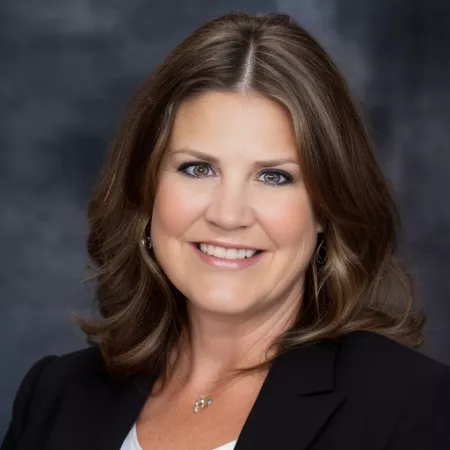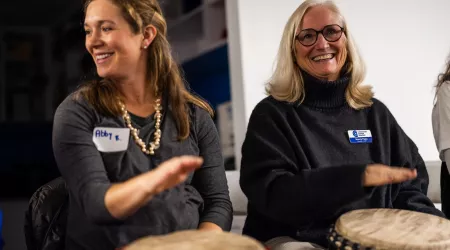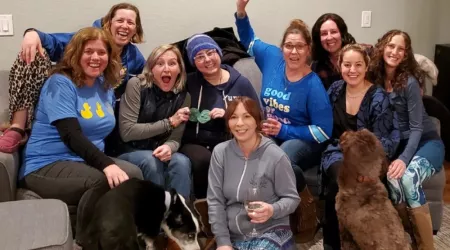Young-onset colorectal cancer prevention
By knowing the symptoms of colorectal cancer and your family history of disease, as well as living a healthy lifestyle and getting checked on time, the odds of preventing young-onset CRC or catching it early, when treatment is most successful, increase.
Lead a colon-friendly lifestyle
Studies show that certain everyday behaviors can contribute to or help prevent colorectal cancer.
Eat well and limit alcohol
Enjoy a balanced diet rich in fruits, vegetables, and whole grains, and low in processed meats and alcohol.
Maintain a healthy weight
A healthy weight reduces the risk of many cancers, including colorectal cancer. Regular physical activity is important for overall health.
Don't smoke
Long-term smoking is associated with increased colorectal cancer risk, as reported in multiple studies.
Learn about your family history of disease
It's been estimated that approximately 23-39% of patients with young-onset CRC have a family history of colorectal cancer.
Earlier screening
If doctors discover that colorectal cancer runs in your family, they may suggest earlier and more frequent check-ups. This can help find and treat CRC early if it does appear.
Identifying genetic syndromes
A family history of CRC may suggest hereditary cancer syndromes like Lynch Syndrome which boost colorectal cancer risk. Genetic testing can offer insights and guide prevention.
Personalized prevention
People with a family history can work with doctors to make personalized prevention and monitoring strategies, including lifestyle changes and screening, to reduce CRC risk.
Know the symptoms and watch for them
While colorectal cancer doesn't always produce symptoms, it's important to know what they are and seek answers if you have any of them.
Bleeding
Blood in or on your stool is a symptom of rectal cancer and colon cancer. The blood can be bright red, or the stool may be black and tarry or brick red.
Changing bowel habits
These may include intermittent or constant diarrhea or constipation, a change in the consistency of your stool, or stools that are more narrow than usual.
Persistent abdominal discomfort
Abdominal discomfort may present as cramps, gas, or pain. You may also feel full, bloated, or like your bowel is not completely empty.
Want to talk about prevention or symptoms?
On our free Helpline, patient navigators will discuss any concerns, including your symptoms, and provide guidance on what to do next. Call (877) 422-2030.

I saw six doctors before my diagnosis. I stressed my family history, but they thought I was too young. You're never too young.
You must advocate for yourself to prevent YO-CRC
We know the incidence rate of young-onset colorectal cancer is rising, but what can we do? By taking action and taking control, we can help decrease these rising rates of young-onset colorectal cancer. Here’s how:
- Educate yourself and your family
- Know your personal risk
- Be your own health advocate
Seek medical attention accordingly. If you’re in the high-risk group or have a family history of colorectal cancer, you should be getting screened earlier than age 45. Start a conversation with your doctor now.
If something seems off with your body and your doctor isn’t acting on it, be a proactive patient and seek a second opinion (or more, if needed). Get answers. Physician-related delays, like missed symptoms or an initial misdiagnosis, have been estimated to occur in 15-50% of young-onset colorectal cancer cases.

Do you know when to get checked?
The Alliance's screening quiz is a short series of questions that can help you know when to get checked and how.
Be in the know
YO-CRC factsTop resources

Cousins to Rev Down Route 66 for a Reason
In a remarkable blend of adventure and advocacy, cousins John, Mitch, and Mike are gearing up for a cross-country charity journey along Route 66. Their mission? To raise awareness and support for two important causes: cystic fibrosis and colorectal cancer.

Volunteer spotlight: Nancy Pope
Get to know Colorectal Cancer Alliance volunteer Nancy Pope and consider being a service to the community yourself.

Volunteer spotlight: Jill Loftus
In this Q&A, get to know Jill Loftus, a passionate and dedicated Colorectal Cancer Alliance volunteer from Denver.





